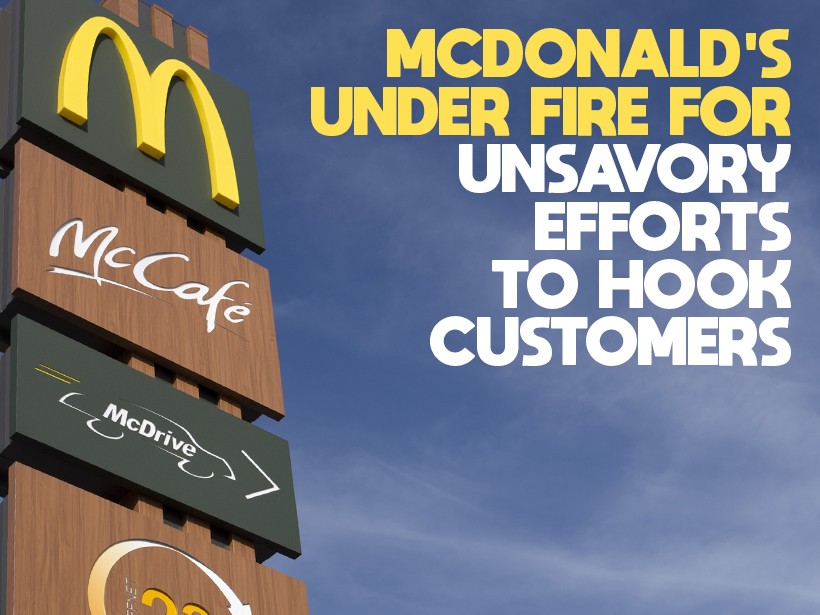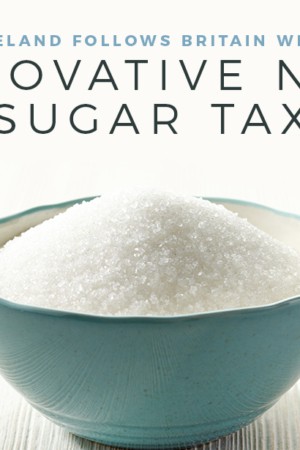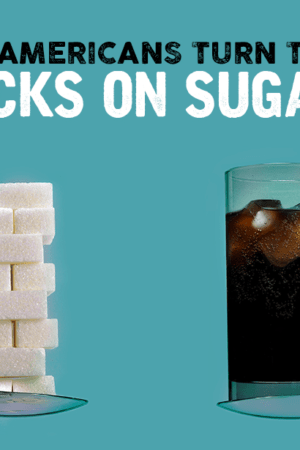One thing the fast food industry doesn’t lack is a variety of ways to make people addicted to its products. The most reliable method, however, is also the simplest and doesn’t rely on sophisticated marketing to bring people back time and time again: sugar. To be sure, few people maintain any grand illusions about the health of fast food. Most would nonetheless be shocked to learn—beyond sodium and saturated fat—just how much added sugar is found in fast food favorites.
The Ugly Truth
The World Health Organization warns against consuming more than 50 grams of sugar a day and strongly recommends limiting intake to 25 grams. Comparing these guidelines to the sugar in fast food products is shocking to say the least: A McDonald’s grilled chicken sandwich? 11 grams. Subway chicken teriyaki footlong sub? 32 grams. Wendy’s apple pecan chicken salad? 40 grams. KFC large baked beans? 60 grams.1
In the wake of Britain’s new soda tax, health campaigners in the UK are attempting to take the push against sugar a step further and have targeted fast food companies, specifically McDonald’s, with a call for change. Activists there have focused in on the Happy Meal, whose 50 grams of sugar is double the recommended dose in one meal, especially offensive insofar as it is directed towards children. The British Dental Association released a statement saying: “The industry needs to play its role in weaning Britain off its sugar addiction instead of developing meal combos for kids that max up the daily dose.”2
Strategies for Addiction
Activists in Britain have found another reason to target the chain, however, with the reinstitution of its decades-old “Monopoly” rewards game. The game, which encourages consumers to buy larger portions to have a better chance at winning, offers a variety of prizes. The majority of them? Ultra-sweet deserts like apple pies and sundaes, of which there are 11.7 million to give away.3
According to Kath Dalmeny, CEO of Sustain, an alliance for better food and farming, “We have heard this week that obesity-related hospital admissions have risen by 18 percent over just one year. It’s time for an end to promotions that can add hundreds of unplanned sugary calories to each visit.”4 Indeed, promotions like these combined with the absurd amounts of sugar they encourage people to eat in one sitting go a long way in explaining the uniquely addictive quality of fast food. With the tremendous early success of the British soda tax as an example, legislators around the world should turn their attention to this equally insidious threat to public health.
NUTRITIONAL DISCLAIMER
The content on this website should not be taken as medical advice and you should ALWAYS consult with your doctor before starting any diet or exercise program. We provide nutritional data for our recipes as a courtesy to our readers. We use Total Keto Diet app software to calculate the nutrition and we remove fiber and sugar alcohols, like erythritol, from the total carbohydrate count to get to the net carb count, as they do not affect your blood glucose levels. You should independently calculate nutritional information on your own and not rely on our data. The website or content herein is not intended to cure, prevent, diagnose or treat any disease. This website shall not be liable for adverse reactions or any other outcome resulting from the use of recipes or recommendations on the Website or actions you take as a result. Any action you take is strictly at your own risk.
- For Keto, the Everyday Research Says it All - March 6, 2019
- Huge Harvard Study Backs Up the Wide-Ranging Benefits of a Low-Carb Diet - February 25, 2019
- Experts Convene for Keto Conference - July 30, 2018




